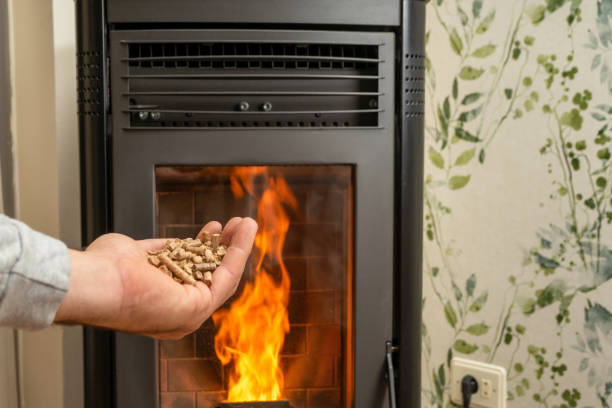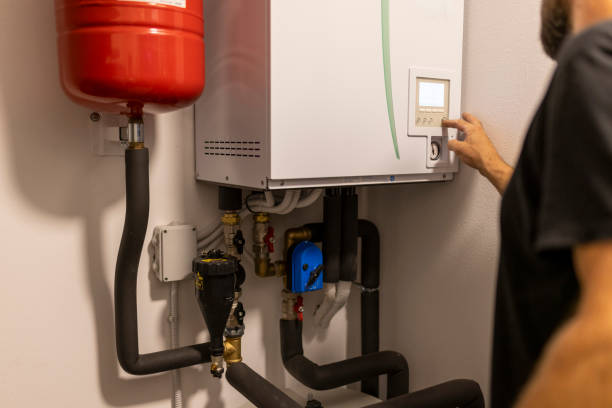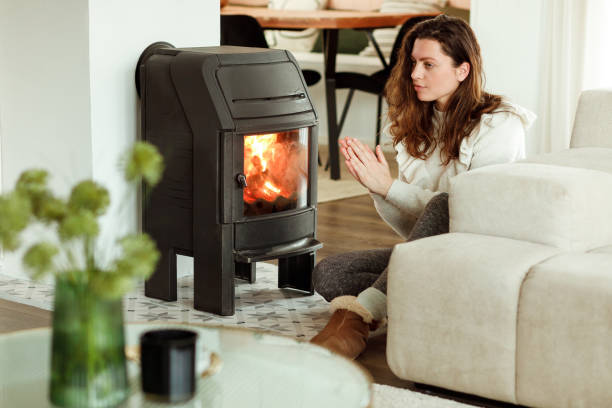In an age where environmental consciousness shapes our lifestyle choices, the concept of home heating has evolved beyond mere comfort. Today, eco-friendly heating systems offer a remarkable solution to keep your home warm while championing the cause of sustainability. Imagine a household where warmth is felt and comes with the satisfaction of reducing your carbon footprint and energy costs. With advancements in renewable energy technologies, achieving this balance is more accessible than ever.
This article delves into the various aspects of eco-friendly heating systems, exploring their benefits, types, and considerations to help you make an informed choice tailored to your needs.
The Essence of Eco-Friendly Heating
Eco-friendly heating systems are designed to minimize environmental impact while maximizing energy efficiency. Unlike traditional systems that rely on fossil fuels, these solutions harness renewable energy sources like solar, geothermal, and biomass. They align with the global effort to combat climate change and promote sustainable living.

Core Principles
- Renewable Energy Usage: Eco-friendly systems use inexhaustible sources such as sunlight, underground heat, and organic materials.
- Energy Efficiency: These systems are engineered to reduce energy waste, ensuring optimal heating with minimal input.
- Reduced Emissions: By relying on cleaner energy sources, they significantly reduce greenhouse gas emissions, promoting healthier air quality.
- Smart Technology Integration: Many systems incorporate smart thermostats and zoning capabilities to enhance precision and convenience.
Why Opt for Eco-Friendly Heating?
Environmental, economic, and lifestyle benefits drive the shift towards green heating.
1. Environmental Impact
Eco-friendly heating systems are pivotal in reducing a household’s carbon footprint. For instance, solar panels and geothermal heat pumps emit little to no greenhouse gases. Homeowners contribute to a cleaner, healthier planet by transitioning to these systems.
2. Financial Savings
Although the initial investment may seem steep, eco-friendly heating solutions offer substantial long-term savings. Lower energy bills and government incentives, such as tax credits and grants, offset installation costs over time.
3. Increased Property Value
Sustainability is a growing priority for homebuyers. Eco-friendly heating systems enhance a property’s appeal and market value, making it a worthwhile investment for homeowners looking to sell in the future.
4. Improved Comfort and Health
These systems often provide better indoor air quality and consistent temperatures, creating a more comfortable and healthier living environment.
Exploring Eco-Friendly Heating Options
The variety of eco-friendly heating systems ensures that every home can find a suitable solution. Here’s an overview of the most popular options:
1. Solar Heating Systems
Solar heating systems harness the sun’s energy, a clean and abundant resource, to provide warmth. These systems often use solar thermal panels to collect and convert sunlight into heat for your home’s water or space heating needs.
- Advantages: Renewable and cost-effective in sunny regions, with potential for tax incentives.
- Considerations: Requires optimal placement and regular maintenance for efficiency.
2. Geothermal Heat Pumps
Geothermal systems utilize the Earth’s stable underground temperatures to heat and cool your home. They are highly efficient and suitable for various climates.
- Advantages: Reliable, low maintenance, and energy-efficient.
- Considerations: High upfront installation costs and specific site requirements.
3. Biomass Boilers and Stoves
Biomass heating systems produce heat from organic materials, such as wood pellets or chips. These systems are especially popular in rural areas with access to sustainable fuel sources.
- Advantages: Renewable and potentially cost-effective with local fuel availability.
- Considerations: Storage space and regular maintenance are required.
4. Heat Recovery Systems
Heat recovery ventilators (HRVs) and energy recovery ventilators (ERVs) recycle waste heat from your home’s exhaust to preheat incoming fresh air.
- Advantages: Energy-efficient and improves indoor air quality.
- Considerations: Best suited for well-insulated homes and requires routine filter cleaning.
5. Air Source and Ground Source Heat Pumps
Air-source heat pumps extract heat from the outside air, while ground-source heat pumps tap into the Earth’s heat. Both options are efficient and versatile.
- Advantages: Dual functionality (heating and cooling) and lower energy consumption.
- Considerations: Moderate upfront costs and effectiveness vary with climate.
Factors to Consider When Choosing a System
Selecting the right eco-friendly heating system involves evaluating your home’s characteristics, budget, and sustainability goals.
1. Location and Climate
- Solar systems thrive in sunny regions.
- Geothermal systems perform well in diverse climates but need specific ground conditions.
2. Home Size and Insulation
- Larger homes may benefit from biomass boilers or geothermal systems.
- Proper insulation enhances the efficiency of any heating system.
3. Budget and Long-Term Savings
- While initial costs vary, consider the potential for energy savings and incentives.
- Research available grants or subsidies to reduce upfront expenses.
4. Maintenance and Sustainability
- Biomass systems require regular upkeep and a reliable fuel source.
- Geothermal and solar systems often demand less maintenance.
5. Compatibility with Existing Infrastructure
- Assess whether your current setup can integrate with the new system or if significant modifications are required.
Future-Proofing Your Home with Green Heating
The journey towards eco-friendly heating is not merely a trend but a transformative lifestyle shift. As governments and organizations worldwide push for greener technologies, homeowners have an unprecedented opportunity to lead by example.
Emerging Innovations
The heating industry continues to innovate, introducing more efficient and affordable systems. Hybrid systems, combining solar and geothermal technologies, are gaining traction. Additionally, advancements in smart technology enable homeowners to monitor and optimize energy usage in real-time.
Community Impact
Transitioning to eco-friendly heating creates a ripple effect, encouraging neighbours and communities to adopt sustainable practices. Collective efforts can significantly reduce regional energy consumption and greenhouse gas emissions.
Economic Growth
Investments in renewable energy spur economic growth by creating jobs in the manufacturing, installation, and maintenance sectors. By choosing green heating solutions, you contribute to this positive economic cycle.

Conclusion: A Warm Embrace for the Planet
Adopting an eco-friendly heating system is more than an upgrade to your home; it’s a commitment to a sustainable future. You play an integral role in addressing global environmental challenges by reducing your energy consumption and carbon emissions. The journey may start with a significant investment, but the rewards—financial savings, increased comfort, and a healthier planet—are worth every effort.
Explore your options, consult with experts, and make the switch today. Embrace the warmth of a greener tomorrow, and let your home reflect your dedication to sustainability. The era of eco-friendly heating is here, and it’s time to join the revolution.

